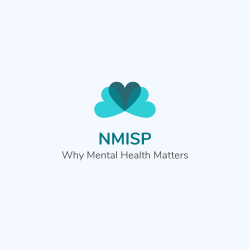We all have our own unique obstacles and challenges, and, therefore, we all deal with and respond to them in different ways. That is why it is crucial to find the right support network and the right treatment plan that will suit you and your needs. Mental health issues can affect us all in different ways, whether it is depression, anxiety, panic attacks, post-traumatic stress disorder, eating disorders, low self-esteem, bipolar disorder, obsessive-compulsive disorder, or any other mental health issue you can think of.

Tips To Deal with Mental Health Issues
Unfortunately, mental health problems can contribute to other health problems. People with mental health problems may be more likely to have other medical conditions, use drugs or alcohol, or become pregnant. Sometimes, mental health problems can cause other health problems. Or, people with mental health problems may also face barriers to health care. Prevent falling into other health and life problems — rather than avoiding it, and it is better to start dealing with your mental health issue at the earliest time.
To help you more, here are the following tips on how to deal with mental health issues:
• Accept yourself and your condition. Does it prevent you from enjoying a happy and normal life if you have a mental health issue? Not a chance. Mental health is a lot more than just a diagnosis. You can still live a full and healthy life even if you have a mental health problem. The truth is, people with mental health problems live the same lives as the rest of us. They just might not always feel like it. That is why it is important for people with mental health problems to accept themselves and their condition.
• Keep an active lifestyle. One of the most common ways to deal with mental health issues is through exercise. Exercise has many benefits for people with mental health issues, such as improving mood and relieving anxiety and depression. It has been proven that people who exercise regularly have a lower risk of developing depression and other mental health conditions.
• Keep in touch with the people you love. You can’t always be with the people you care about, but you can still keep the love flowing through technology. If you want to keep in touch with your friends and family but want to avoid creating a distraction from your mental health, you need to use technology to take care of business. You can connect with your loved ones through many other social media sites and online communication apps that take less of your time and energy than traditional methods.
• Asking for help. This is one of the most important things you can do when you have a mental health issue. In fact, as the world’s largest mental health charity, it is one of our core services. But, as with any issue, it’s never as simple as asking for help.
Emotions are slippery things. They can take us out of ourselves or push us out of ourselves. They can make us feel nothing, or they can make us feel nothing but anger. They can take us away from ourselves or drive us right back to ourselves. They can make us feel alone, or they can make us feel alone and not want to be alone. Mental health problems such as depression and anxiety can be scary things to deal with, and they can be hard to understand. But they don’t have to be.

